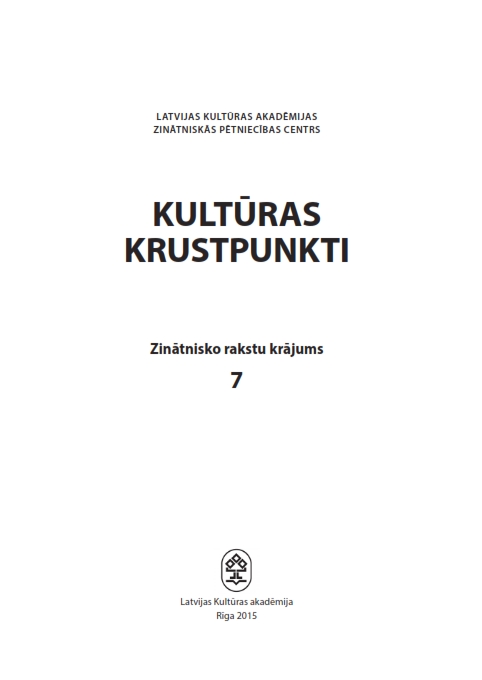Dailes teātra aktiermākslas principi un modernisms (20. gs. 20.–30. gadi): Felicitas Ertneres ieguldījums kustību valodas izstrādē
Principles of Acting at the Daile Theatre and Modernism (1920s–1930s): Felicita Ertnere’s Contribution to the Development of Movement Language
Author(s): Ieva RodiņaSubject(s): Theatre, Dance, Performing Arts, Cultural history, Interwar Period (1920 - 1939), History of Art
Published by: Latvijas Kultūras akadēmija
Keywords: Felicita Ertnere; Eduards Smiļģis; Daile Theatre; Emile Jaques-Dalcroze; François Delsarte; modernism; eurhythmics;
Summary/Abstract: The Daile Theatre, founded by Eduards Smiļģis in 1920, is related to the creative experiments of the greatest modernist theatre directors of Western Europe and Russia. The theatre movement consultant Felicita Ertnere (1891–1975) contributed substantially to the creation of a particular movement language for the artistically original languages of the Daile Theatre. She also contributed to the creation and development of the principles of acting for the Daile Theatre. Education that Ertnere had acquired in Saint Petersburg and her knowledge about modernism movement theories and methods of her time were very important in the creation of movement language characteristic of the Daile Theatre. There are two main sources of influence for Ertnere: (1) the physical method of training created by Peter Lesgaft (Пётр Лесгафт) based on the theory on the human body and mind as a unified system, and the view that understanding of human anatomy is essential alongside with training the physical body; it is also essential to control your body with the help of your mind; (2) Western European theories of movement which appeared in the first half of the 20th century: eurhythmics created by Emile Jaques-Dalcroze and the language of gestures created by François Delsarte. In 1924 the Daile Theatre, as they had a demand for a new type of actors, founded a three-year course or school whose aim was to “prepare actors for the Daile Theatre who would systematically and methodically acquire the necessary technique in order to raise the artistic level of the Daile Theatre.” Ertnere contributed to the creation of the Daile Theatre movement language by delivering practical classes and by closely working together with Eduards Smiļģis on the movement script for Daile Theatre performances created by Eduards Smiļģis that was called innovative and compared to European and Russian modernist theatre practice by critics of the time.
Journal: Culture Crossroads
- Issue Year: 7/2015
- Issue No: 1
- Page Range: 186-193
- Page Count: 8
- Language: Latvian

